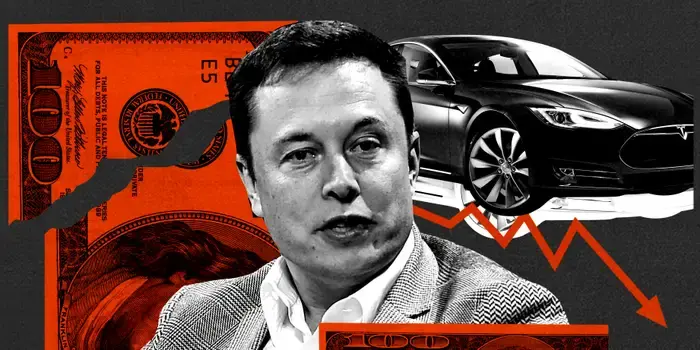- A Delaware judge has ruled Tesla CEO Elon Musk’s $56 billion compensation plan invalid, citing the board’s failure to ensure fairness and suggesting they were influenced by Musk’s charisma and optimistic statements.
- The decision, following a lawsuit by shareholder Richard Tornetta, led to a 3% drop in Tesla stock in after-hours trading, clearing the largest compensation plan in U.S. corporate history.
- The court’s decision raises questions about future negotiations between Tesla and Musk, as the CEO expressed reluctance to lead without 25% voting control, highlighting ongoing challenges in balancing Musk’s multiple roles and compensation.
On January 30th, local time, a Delaware judge ruled that Tesla CEO Elon Musk‘s $56 billion compensation plan is invalid, stating that the company’s board “failed to ensure fairness in the compensation plan.” Following the announcement of the ruling in a lawsuit filed by Tesla shareholder Richard Tornetta, Tesla (TSLA) stock fell over 3% in after-hours trading on Tuesday. As of the closing of the U.S. stock market on Tuesday, Tesla was up 0.35%, trading at $191.59 per share, with a total market value of $610.2 billion.
‘The board is captivated by Musk’s superstar charm’
This decision invalidates the largest compensation plan in the history of U.S. corporations. The judge deemed the plan to be negotiated by the board after discussions, seemingly yielding to the frequently media-covered CEO, and following promises that allowed him to share in the company’s significant growth dividends.
“The board was misled by the ‘rosy’ statements and perhaps captivated by Musk’s superstar charm, never questioning the necessity of this $58 billion: Is this compensation plan necessary for Tesla to retain Musk and achieve its goals?” – Judge Kathaleen McCormick of the Delaware Chancery Court.
McCormick instructed Tesla shareholders questioning the compensation plan to collaborate with Musk’s legal team to draft an order implementing the judge’s decision.
Tesla’s 2018 CEO compensation plan for Musk was unprecedented in corporate compensation plans, making the Tesla and SpaceX boss one of the world’s billionaires and the richest person on Earth. In a tweet later on Tuesday afternoon, Musk wrote, “Never register your company in Delaware.”
The compensation plan is to ensure Musk’s continued focus on Tesla
On November 14, 2022, Tesla shareholders filed a lawsuit against Musk’s $56 billion compensation case in the Delaware Chancery Court, which lasted for five days. During the trial, Tesla’s Chairman Robyn Denholm stated that Tesla agreed to pay Musk about $56 billion to serve as CEO, claiming it was justified, even though he spent his time on projects like establishing colonies on Mars and selling perfume and flamethrowers.
Denholm previously stated that Musk is the world’s richest person with “foresight and perseverance,” transforming Tesla from a startup into one of the world’s most valuable companies. She emphasised that the exact duration of Musk’s work was not crucial; what mattered was the board’s need for his “focus and attention.”
In the November 2022 compensation trial, Musk testified that the money would be used to fund the interplanetary travel plan. “It’s a way to get humanity to Mars,” he testified, “so Tesla can help achieve this goal.” Musk’s wealth is globally ranked, with a significant portion coming from his agreements with Tesla. The company’s directors argued during the week-long trial that paying Musk a high salary was necessary to ensure his continued focus on Tesla.
Elon Musk asks for 25% voting control
The plaintiff’s legal team also argued that the board had a responsibility to provide a lower compensation plan or seek another CEO, insisting that they should have required Musk to work full-time at Tesla rather than focus on sideline projects like SpaceX and X. The compensation plan granted Musk stock option rewards, allowing him to purchase Tesla shares at a substantial discount after achieving financial and operational goals. He would have to hold the purchased shares for five years. This ruling will make the next round of compensation negotiations between Tesla and Musk a focal point of attention.
In January, Musk posted on X, stating that he didn’t want to lead Tesla unless he had 25% of voting control. At that time, the billionaire held about 13% of Tesla’s shares. In 2021, Tesla’s market value had significantly expanded from $500 billion at the time of the compensation plan agreement, briefly surpassing $1 trillion. At that time, small shareholder Tesla investor Richard Tornetta, who owned nine shares of the company, claimed that the board, in setting the CEO compensation plan in 2018, failed to break free from Musk and make an independent decision. Tornetta argued that Tesla’s board gave the highest compensation plan to a part-time CEO globally. In addition to Tesla, SpaceX, and Twitter, Musk also leads the Boring Company, engaged in underground tunnel excavation. He is also the founder of Neuralink, a company dedicated to implanting chips in the human brain.
Also read: Musk seeks to rule AI and tech world with 25% voting control of Tesla, post IPO

